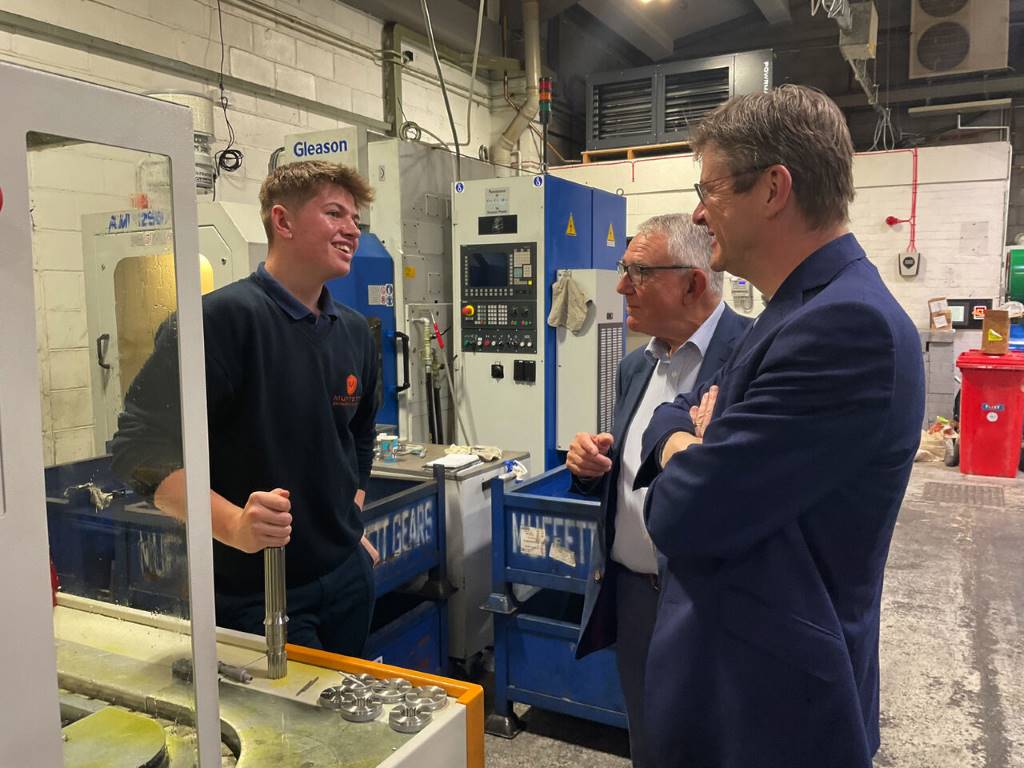Acoustically speaking
Birmingham turned parts subcontractor, MSP, was experiencing problems when machining components from Hastelloy bar on a CNC sliding headstock lathe.
The material's toughness was causing unpredictable and early failure of drills and taps, which was slowing production and proving expensive. Consequently, after consultation with Emmaco UK, an automated tool monitoring system was installed. Solutions reports. Emmaco is a UK specialist supplier of high speed spindles and process monitoring systems. As UK agent for IBAG and Argotech, the company can supply process monitoring systems or high speed spindle systems to suit a variety of applications.
The use of high speed spindles can provide a competitive edge in the marketplace, utilising the benefits of shorter lead times and higher accuracy. The Argotech monitoring system fully monitors machining process, detecting tool wear, breakage, faulty parts and machine faults and can be used for all types of machine processes including turning, milling, stamping, forming and moulding. Fitted with an acoustic sensor, the Argotech PA-2 automatically checks the sound frequencies produced during a critical drilling operation, stopping the machine instantly in the event of tool wear or failure. The PA-2 has a second channel that is used by MSP to monitor the power being drawn by the main spindle of the lathe during machining operations, ensuring that it remains within preset limits. The problem The subcontractor was having particular difficulty producing a 2.5mm diameter blind hole with an M3 x 0.5mm x 6H thread to a minimum depth of 4.2 mm in two component variants, after the customer altered the material specification from 316Ti stainless steel to Hastelloy C-276. The weak link was the drilling operation. Each high speed steel drill from OSG produces typically 250 to 300 holes in Hastelloy before it fails, however, its breakage is unpredictable and early failure is frequent. The drill is relatively inexpensive at £5, but a broken bit in the hole, or a hole that is absent or not drilled to depth, will destroy a £80 Vardex solid carbide thread milling cutter as it tries to enter. The Argotech solution Fast, responsive tool monitoring was needed to avoid the problem and the Argotech PA-2 provides the solution. It is mounted on the front of the Star lathe and wired into its CNC system, with connections also to the sensors within the machine. The acoustic sensor is clamped to the sliding head lathe's tool platen, which carries the endworking drill. It is this close mechanical link between tool and monitor on a sliding head lathe that allows sound to be detected with such precision.
The sensor was found to be the most sensitive and accurate at recognising that the small diameter drill was no longer cutting at any point during the pecking cycle, signifying that the tool was broken. It also allows drill replacement before breakage, providing that the tool wears predictably rather than failing suddenly. The spindle power sensor is used to monitor tooling not associated with the tool platen. Leroy Lippett, MSP's engineering manager explains: “Setting up acoustic monitoring is very straightforward. We ran a peck drilling cycle on a component using a new tool and recorded an ideal acoustic profile on the screen of the PA-2. We then drew boundary boxes at strategic points along the trace where it is essential for the drill to be present. These are on the second peck to make sure that the drill did not break during entry, on the last peck to verify that the hole is completely machined and on retraction to warn if the drill breaks on the way out.” He continues: “If there is no alarm, it is certain that the hole has been drilled to the required depth and is clear of obstruction, so it is safe for the thread milling cutter to enter. When the drill does eventually break, the lower threshold of one of the boundary boxes detects the absence of sound and the lathe is stopped instantly. Alternatively, the same boundary box detects when the noise from the drilling operation increases beyond the upper threshold and similarly stops the machine to avert tool breakage and allow its early replacement.” Payback calculation During a full year of operating this system, MSP has not lost a single thread mill prematurely, whereas before the Argotech PA-2 was fitted, the subcontractor was losing £400 worth of cutters per week based on 24 hour running of the sliding head lathe. Therefore within the first 10 weeks of installing the process monitor, there was a saving of £4,000 – equal to the cost of installing the PA-2 and both sensors. The payback calculation did not take account of the previous losses associated with scrap components and material at £58/kg, disruption to production, or the higher labour costs. If they had been factored in, amortisation would have been even faster. MSP has since employed the Argotech PA-2 to ensure trouble free production of another component requiring a coaxial, drilled and broached hexagonal hole. The system is helping the company to fulfil its ‘zero-defect' commitment to customers, without forfeiting the benefits of unattended running or incurring unacceptable tooling costs. Emmaco
www.emmaco.co.uk













